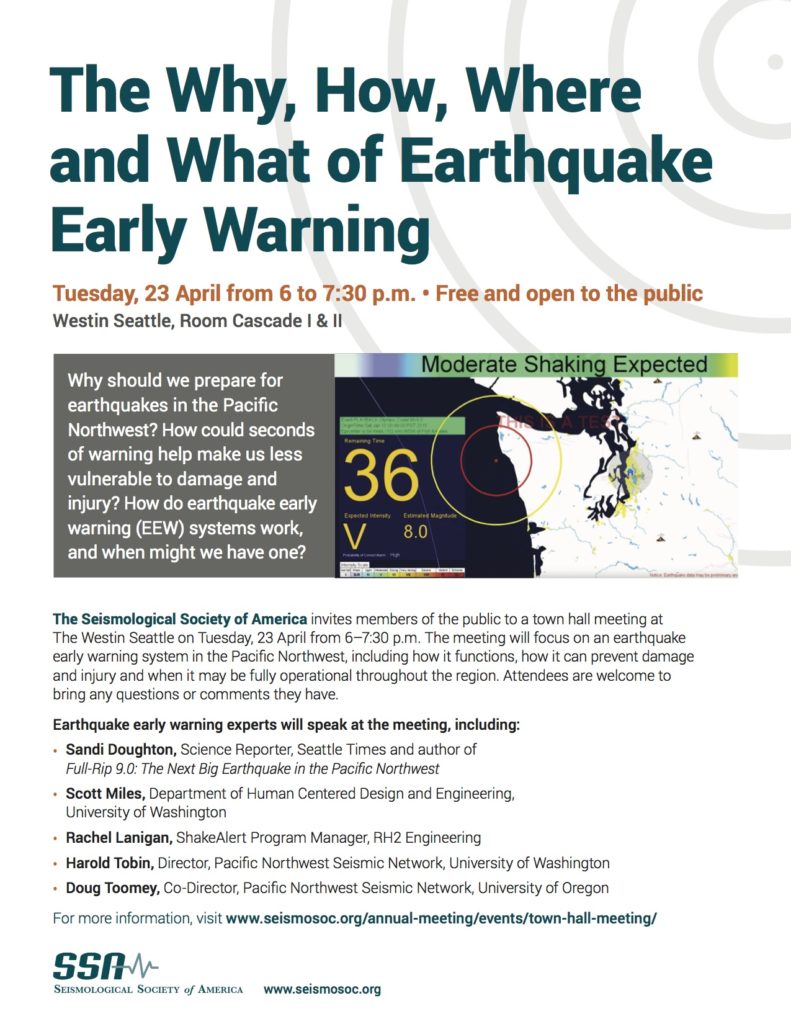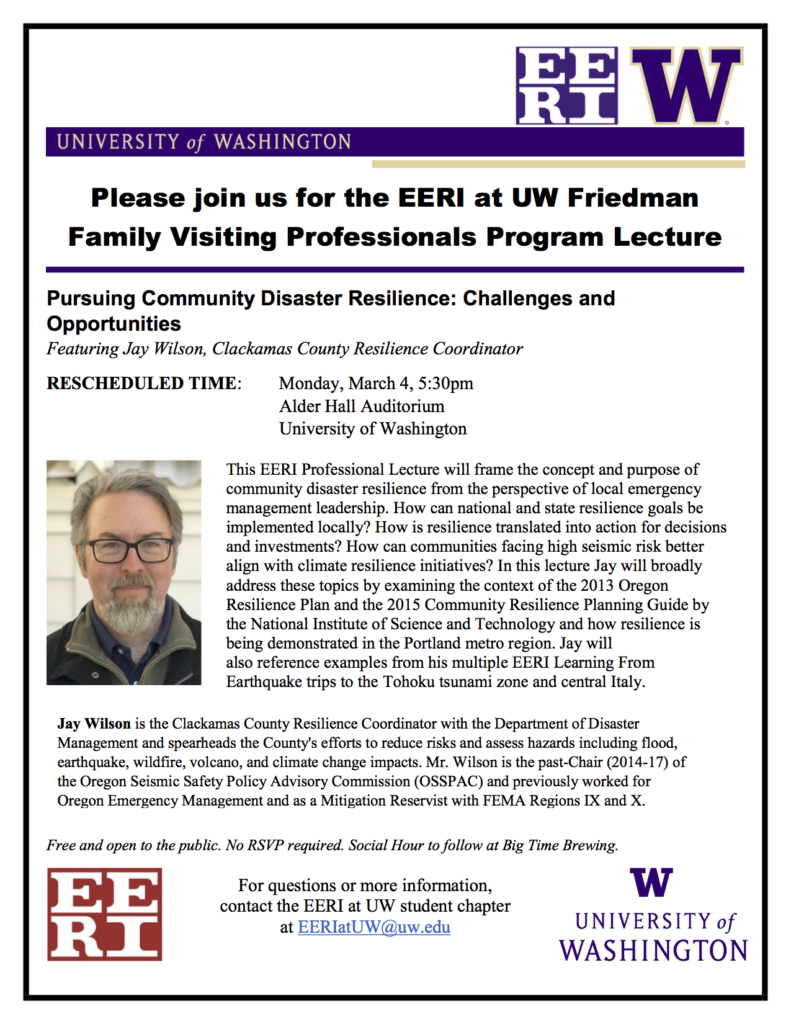AIA Oregon: URM Seismic Resilience Symposium
EERI Washington Chapter members may be interested in attending The American Institute of Architects Oregon Chapter’s URM Seismic Resilience Symposium. Event details are included below:
URM Seismic Resilience Symposium
July 18-20, 2019
Unreinforced Masonry (URM) buildings present a challenge for earthquake-prone communities. There are over 1,650 URM buildings in Portland and millions around the world. These structures are important historic, architectural, cultural, and economic landmarks, but their vulnerability to earthquakes imperils them and the people that live and work in them.
The URM Seismic Resilience Symposium, July 18-20, 2019, is a three-day event for architects, engineers, owners, property managers, and anyone that might deal with URM buildings. AIA HSW and Engineering continuing education credits will be available.
Visit the AIA Oregon website for details on the agenda, speakers, and special events.

The Why, How, Where and What of Earthquake Early Warning – A Seismological Society of America Town Hall
The Seismological Society of America will be hosting a town hall meeting on earthquake early warning systems in the Pacific Northwest as part of their 2019 Annual Meeting in Seattle. This event is free to attend!
For more information, please visit the Seismological Society of America Website
Mon, April 1st: The William B. Joyner Lecture Featuring Dr. Ellen Rathje, University of Texas at Austin
|
|||||||||||||
|
|||||||||||||
|





 Ellen M. Rathje is the Warren S. Bellows Centennial Professor in the Department of Civil, Architectural, and Environmental Engineerin
Ellen M. Rathje is the Warren S. Bellows Centennial Professor in the Department of Civil, Architectural, and Environmental Engineerin